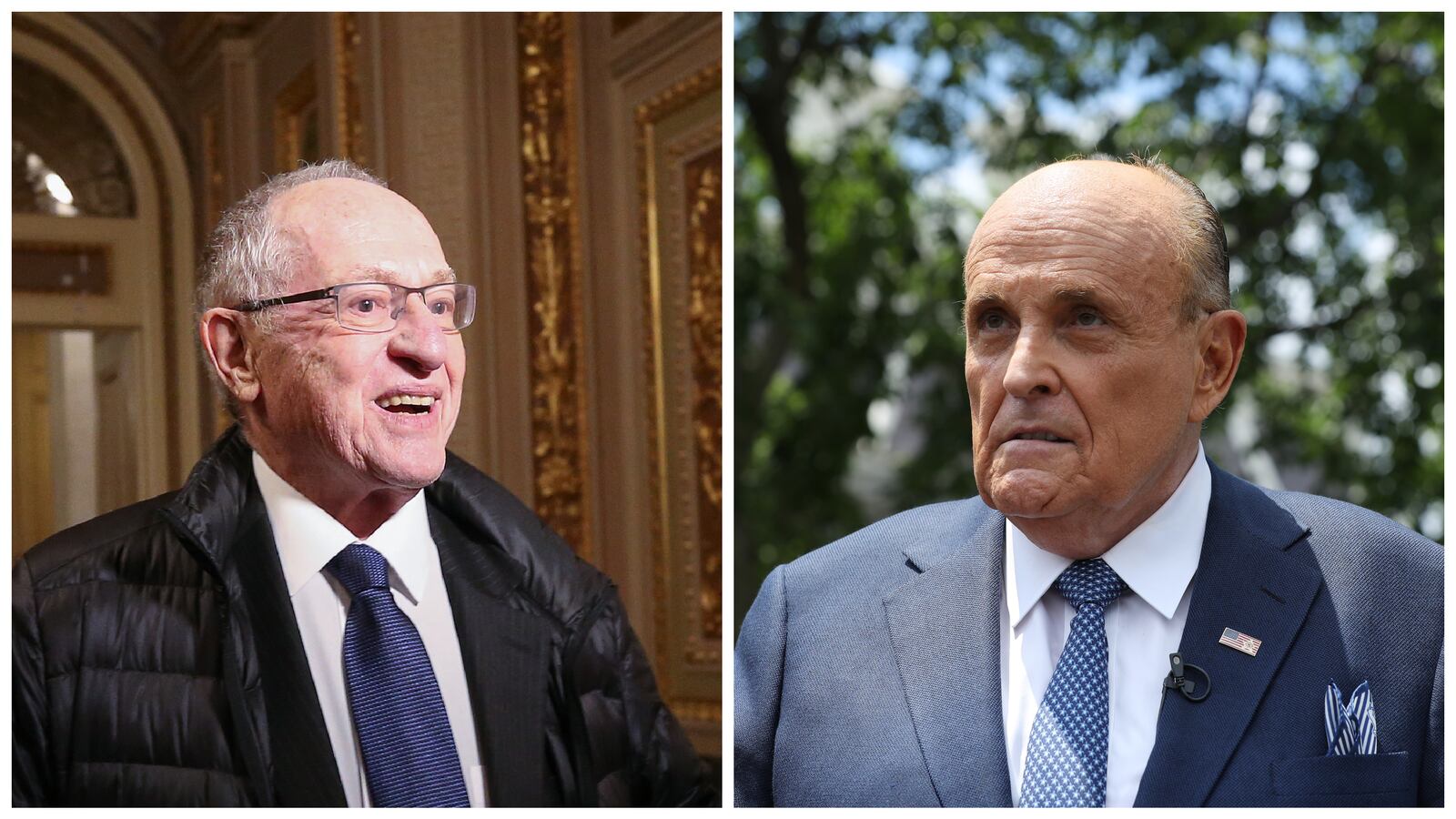On Wednesday, the apartment and office of former New York City mayor and Donald Trump lawyer Rudy Giuliani were raided by the feds. On Thursday, he picked up the phone and called Alan Dershowitz.
“I had spoken out a number of times against the raid, [and on Thursday] Giuliani called me and asked me if I would share that view with his lawyers,” Dershowitz, a celebrity attorney and Democrat who served on then-President Trump’s defense team in the first impeachment trial, said in a phone interview Friday morning.
Dershowitz continued that he would be happy to talk to Giuliani’s lawyers about the Fourth Amendment issues surrounding the search of Giuliani’s apartment and the seizure of some of his electronic devices “as a sounding board,” but he noted that he hadn’t heard from his lawyers yet.
Dershowitz said he has agreed to offer Giuliani and his team “constitutional advice” following the raid but isn’t one of his counsels of record. Dershowitz reiterated that his position is that “a subpoena should be the first recourse.”
“You do a search warrant only when you have reason to believe that the lawyer would destroy evidence,” Dershowitz said, adding that the Fourth Amendment provides particular protections when it comes to “lawyers and doctors and priests—anybody who has privileged information.”
Robert Costello, Giuliani’s lawyer and longtime friend, declined to say whether or not he’d connected with Dershowitz, or had been asked to yet.
Prosecutors are reportedly probing whether Giuliani violated lobbying rules in his campaign to oust the then-U.S. ambassador to Ukraine, Marie Yovanovitch, in the spring of 2019, according to The New York Times. The Foreign Agents Registration Act requires Americans to register with the Justice Department when they seek to influence the U.S. on behalf of a foreign principal, and the investigation is reportedly looking into whether Giuliani’s quest to oust Yovanovitch was carried out on behalf of a Ukrainian official.
In addition to the search of Giuliani’s apartment Wednesday, Costello revealed that prosecutors had covertly executed a search warrant on his client’s iCloud account in “late 2019.” During an appearance on Tucker Carlson’s Fox News show, Giuliani complained that the search took place “in the middle” of his work during former President Trump’s first impeachment trial and that prosecutors “took documents that are privileged.”
Dershowitz was a member of Trump’s legal defense during the 2020 Senate trial, and Giuliani of course led—with Trump’s blessing and support—the Biden-dirt-digging expedition that directly resulted in the Trump-Ukraine scandal and those same impeachment proceedings.
Dershowitz’s involvement in the Giuliani case largely mirrors his involvement in advising the defense team for another Trump friend, pillow entrepreneur Mike Lindell. Facing a $1.6 billion defamation suit from Dominion Voting Systems over his false claims about the company, Lindell turned to Dershowitz to provide advice on the case. While not an attorney of record in the Dominion suit, Dershowitz has offered legal theories for the Lindell legal team to pursue, regarding the possible First Amendment implications of the Dominion suit.
On Friday, Dershowitz also pointed out the irony of him advising Giuliani on the matter of the federal raid: Since the 1970s, Giuliani, a former federal prosecutor, and Dershowitz, a longtime criminal defense attorney, have repeatedly been on opposite sides of various Fourth Amendment issues and cases. Over those years, they each would at times invite the other to speak to their classes or office meetings to discuss the Fourth Amendment and other topics of legal disagreement and interest.
“He was wrong then, and he is right now,” Dershowitz said. “Nothing better to help you change your mind than when it happens to you.”






